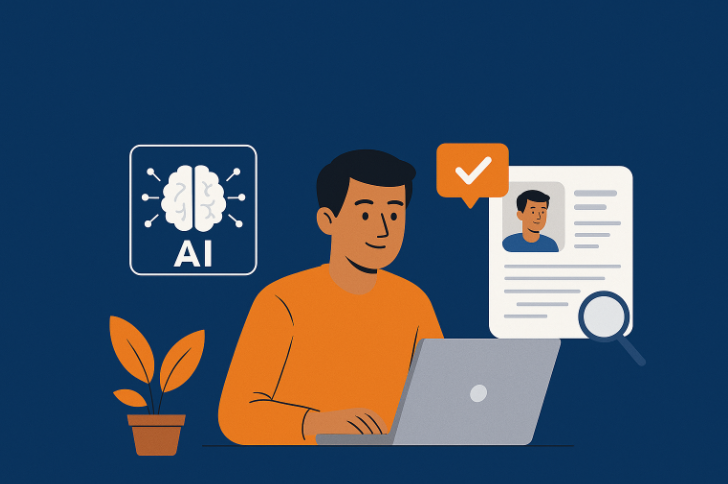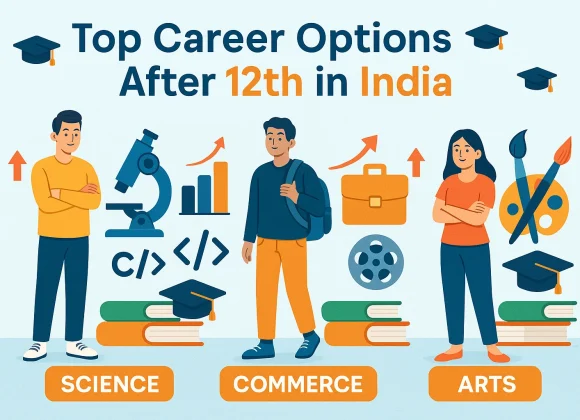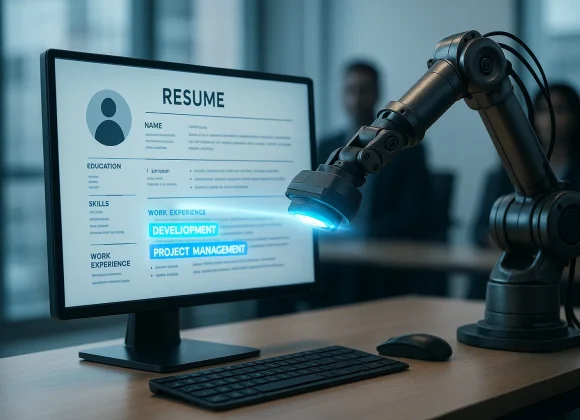The job market in 2025 is no longer just about sending resumes and hoping for a callback. Artificial Intelligence (AI) now sits at the heart of AI job applications, influencing everything from resume screening to virtual interviews. As an Indian job seeker, adapting to this shift isn’t optional—it’s essential.
In this guide, you’ll learn how AI shapes hiring and how to optimize your job search to beat the bots and land interviews.
What Is AI in Job Applications—and Why Should You Care?
Recruiters today are overwhelmed. A single job post can receive hundreds of applications within hours. To handle this, companies use AI-powered Applicant Tracking Systems (ATS) and smart recruitment tools to:
- Screen resumes based on keywords and relevance.
- Score candidates using algorithms.
- Automate interviews through video analysis and chatbots.
If your resume isn’t optimized for AI, it might get filtered out before a human even sees it.
How to Optimize Your Resume for AI (and Still Impress Humans)
Here are 6 proven strategies to ensure your resume gets past AI filters and wins over recruiters:
1. Match Keywords from the Job Description
AI tools scan for exact keywords. For example, if a job description mentions “data visualization,” using a synonym like “data dashboards” might not match. Use exact terms from the job post—naturally.
Pro Tip: Use tools like Jobscan or Rezi to compare your resume against the job description.
2. Avoid Fancy Designs or Graphics
Tables, charts, icons, and multi-column layouts confuse ATS software. Use a clean, text-based format with standard headings like:
- Summary
- Work Experience
- Skills
- Education
3. Use a Tailored Resume for Every Application
Don’t rely on one generic resume. Customize your resume to reflect the specific job’s requirements.
4. Highlight Hard and Soft Skills
AI ranks both technical and soft skills. Include both:
- Hard skills: Python, SEO, Excel, project management
- Soft skills: Communication, problem-solving, leadership
5. Include a Summary Section
Start your resume with a brief Professional Summary highlighting your top skills and achievements. This helps AI (and recruiters) instantly understand your value.
6. Use Action Verbs and Quantify Achievements
AI also looks for performance indicators. Instead of:
> “Managed a team” Say: “Led a 10-member team and increased productivity by 25% in 6 months”
AI Is Also Watching During Interviews—Here’s How to Prepare
Many companies now use AI video interviews. You might be asked to record your answers to pre-set questions. AI then analyzes:
- Your tone of voice
- Eye contact
- Body language
- Confidence level
Tips for AI Interview Success:
- Practice on platforms like HireVue or Interview Warmup (by Google).
- Maintain eye contact with the webcam.
- Dress professionally—even for virtual interviews.
- Smile and speak clearly.
What Roles Are in Demand in 2025?
If you’re just entering the job market or planning a shift, consider fields where AI is fueling job growth:
- AI & Data Science
- Cybersecurity
- Digital Marketing
- Remote Tech Support
- SaaS Product Management
Platforms like LinkedIn, Naukri, and Instahyre are actively listing such roles with high competition—so optimizing your profile and resume is critical.
Bonus Tools to Boost Your AI-Ready Job Hunt
- Jobscan.co—Resume vs. job description match analyzer.
- Resumatch.io—Free ATS checker.
- Teal HQ—Organize your job search with tracking and resume scoring.
- LinkedIn AI Resume Builder—Instantly generate resumes based on your profile.
Related Posts You May Like:
- How to Write an ATS-Friendly Resume in 2025: Tips and Templates
- Top 10 AI Tools to Supercharge Your Job Search
- Navigating the Hybrid Job Market in India: Opportunities in 2025
- How to Prepare for Video Interviews with AI Assessment
- Top 10 Emerging Careers in the AI Era: What You Need to Know
Final Thoughts
In 2025, getting hired isn’t just about qualifications—it’s about strategy and tech awareness. By learning how AI systems work and tailoring your approach, you can turn the odds in your favor.
Ready to future-proof your career?




